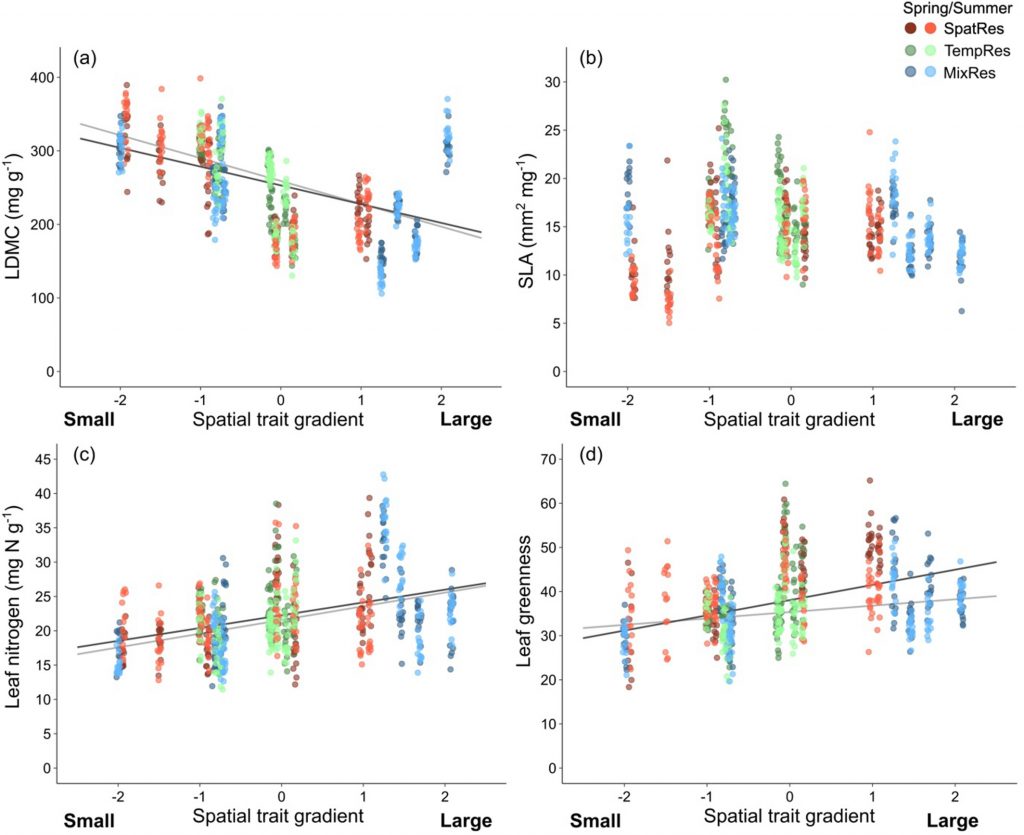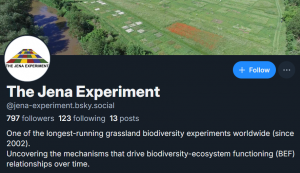New publication from Bachmann et al. in Ecology and Evolution: Traits of the leaf economics spectrum do not always relate to species biomass proportions in grassland communities of varying diversity
Traits of the “leaf economics spectrum” (LES) relate to a functional trade-off between slow and fast return on carbon investment, but it is not clear whether the globally observed trait-relationships also hold in local plant communities. We studied four leaf traits associated with the LES in 20 grassland species, which represented different strategies in spatial resource acquisition (from small to large) and temporal resource acquisition (from early to late). Species were grouped into three partly overlapping pools of eight species to create a field experiment with 138 communities of varying species richness (1, 2, 3, 4, and 8 species), which either varied in spatial resource acquisition, temporal resource acquisition or both. Leaf nitrogen concentrations (NLeaf) and greenness (LeafG) decreased with species richness, while leaf dry matter content (LDMC) and specific leaf area (SLA) did not. Species with different spatial resource acquisition varied in leaf traits, suggesting that large species had “fast” traits (low LDMC, high NLeaf, dark LeafG), while small species had “slow” traits (high LDMC, low NLeaf, light LeafG). The extent of intraspecific trait variation (ITV) was smallest in LDMC and largest for NLeaf, but for all leaf traits, a greater portion of trait variation among communities was explained by interspecific trait variation (i.e., different species compositions) than ITV. Species with “fast” traits generally contributed more to total biomass than those with “slow” traits, but species biomass proportions did not always match expectations for all traits related to the “fast-slow” trade-off. Multi-trait analyses showed that trait relationships expected from LES were not always present, and were modified by ITV and trade-offs. In summary, independent responses of individual LES traits to local plant diversity lead to context-dependent trait–trait relationships, which cannot easily be interpreted as differences in growth strategies, and thus limiting the general applicability of LES in grassland communities.

Reference:
Bachmann, D., N. Buchmann, A. Ebeling, and C. Roscher. 2025. Traits of the leaf economics spectrum do not always relate to species biomass proportions in grassland communities of varying diversity. Ecology and Evolution 15:e72013. https://doi.org/10.1002/ece3.72013.



